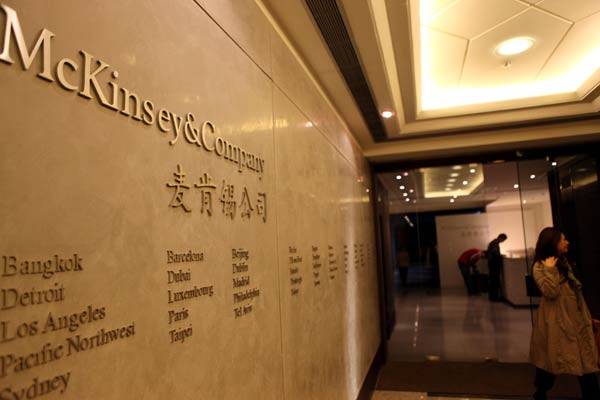
Prominent Republican lawmakers, including Marco Rubio, the vice-chair of the Senate intelligence committee, and Michael McCaul, the chair of the House Foreign Affairs committee, are urging a ban on consulting behemoth McKinsey from securing American federal contracts. This call follows revelations first published in the Financial Times that a think-tank led by McKinsey provided policy recommendations to the Chinese central government. Rubio and McCaul argue that McKinsey's involvement in shaping Beijing's 13th five-year plan in 2015 undermines American security, violates international trade rules and jeopardizes American national interests.
McKinsey, known for its extensive history of supporting the US government, has faced scrutiny after a Financial Times report disclosed that the Urban China Initiative (UCI), a McKinsey think-tank, played a key role in developing China's 2016-2020 five-year plan for China’s National Development and Reform Commission. The plan aimed to enhance China's technological capabilities, contributing to heightened tensions between the US and China.
McCaul has condemned McKinsey, stating that companies supporting adversaries' military or human rights abuses should not receive taxpayer-funded contracts. Rubio has accused McKinsey of lying about its relationship with the Chinese Communist party and has questioned the justification for any future McKinsey contracts with the American federal government.
McKinsey denies the allegations, stating that the UCI was a separate entity, which partnered exclusively with universities. McKinsey emphasized that it did not author the research conducted by UCI for China's National Development and Reform Commission. The firm rejects accusations of lying about its ties to the Chinese Communist party.
The UCI provided recommendations to China in 2015, contributing to the 13th Five-Year Plan. The plan aimed to boost China's science and technology development, with UCI's work suggesting policies to achieve dramatic productivity increases. UCI's recommendations covered areas such as military-civil material technology, cloud computing, and support for domestic IoT companies.
The UCI's involvement in crafting China's five-year plan materialized in a 310-page book titled "Scientific and Technological Revolutions around the World." This book, produced for China's National Development and Reform Commission (NDRC), contained recommendations for deeper cooperation between the Chinese military and businesses, pushing foreign companies out of sensitive industries, and boosting China's technological prowess. The book's foreword was written by McKinsey's Shanghai-based senior partner Lola Woetzel, who is credited as the co-chair of UCI.
McKinsey has a significant history of securing federal contracts in the US, amounting to $1 billion since 2008. Despite being frozen out of consulting for the Food and Drug Administration (FDA) for the past three years due to conflict-of-interest accusations related to its work for opioid manufacturers, McKinsey remains a key contractor for the US Department of Defense, receiving at least $450 million in work since 2008.
The mounting pressure from lawmakers, especially the call for a ban on federal contracts, raises concerns about the future prospects for McKinsey. The ongoing scrutiny reflects a broader trend in Congress, which is intensifying its examination of US companies' business interests and investments in China. The House China committee's inquiry into McKinsey's role further highlights the potential challenges companies may face in balancing their operations between the US and China.
The House China committee, including Democratic members, expressed deep concern over the Financial Times report that revealed the details of McKinsey’s work, and plans to inquire into the matter. McKinsey's potential ties with China and its impact on US national interests remain a focal point for ongoing investigations.
McKinsey's global managing partner, Bob Sternfels, denied any work for the Chinese central government during a congressional hearing. McKinsey contends that the UCI, shut down in 2021, was a non-profit initiative independent of McKinsey, and the firm had not received compensation for UCI-related research or initiatives.
McKinsey vehemently rejects accusations of lying about its relationship with the Chinese Communist Party and the UCI's work for the Chinese government. The firm emphasized its long history of supporting the US government and insists that UCI was a separate entity. However, the political landscape remains contentious, with lawmakers questioning the integrity of consulting firms engaging with both the US government and foreign entities, particularly those perceived as adversarial.
The fallout from the controversy could affect McKinsey's future federal contracts, particularly amid calls from lawmakers for a ban on consulting firms that collaborate with China. The firm's denial and its historical contributions to the US government are under scrutiny, raising questions about its role in navigating conflicts of interest.
The political storm surrounding McKinsey's alleged ties to China reflects growing concerns among lawmakers about the influence of US companies in foreign states considered hostile to American interests. As investigations continue, McKinsey faces the challenge of defending its reputation and justifying its role in advising both the US government and entities linked to geopolitical adversaries.

